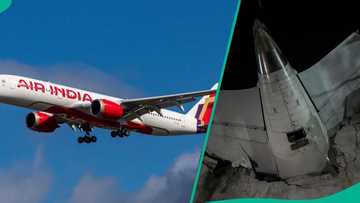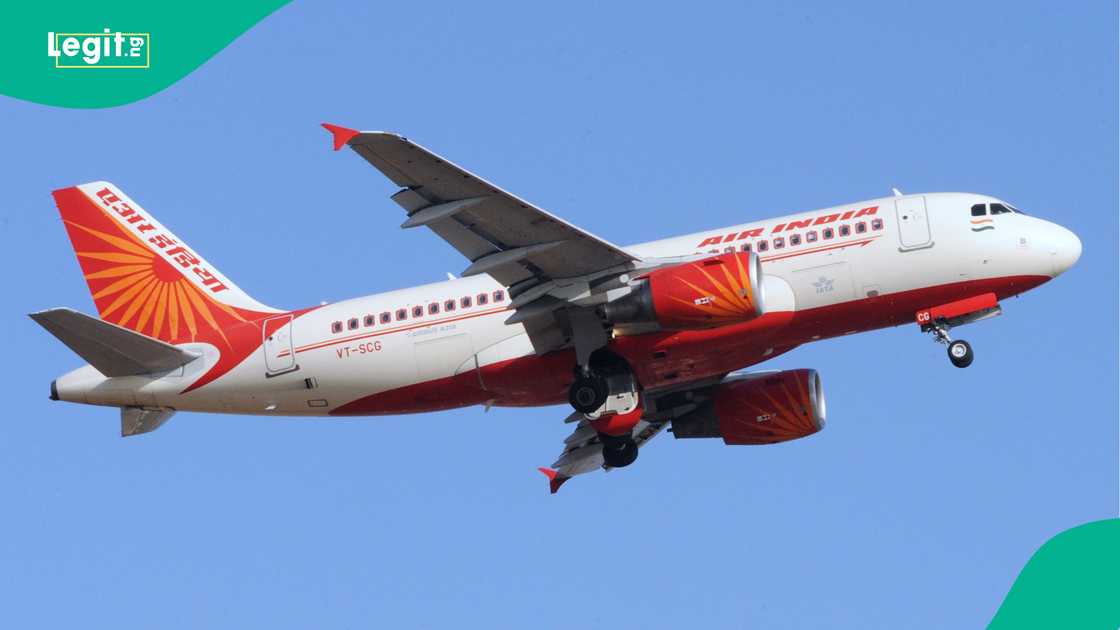Air India: Officials Finally Submit Report on What Caused the Plane Crash that Killed 241 Passengers
- A preliminary report into the deadly Air India crash on 12 June is expected by Friday, with investigators zeroing in on the aircraft’s fuel control switches following cockpit and flight data analysis
- The London-bound Boeing 787 Dreamliner lost altitude moments after takeoff from Ahmedabad, killing 241 people aboard and others on the ground in one of India’s worst aviation disasters
- As scrutiny intensifies over the plane’s final moments, sources suggest no mechanical failure has been flagged, though questions remain over possible human action involving engine thrust
CHECK OUT: How to Start Earning with Copywriting in Just 7 Days – Even if You’re a Complete Beginner
A preliminary report into the fatal crash of an Air India Boeing 787 Dreamliner is expected to be published by Friday, according to sources familiar with the investigation.
The probe has narrowed its focus to the aircraft’s engine fuel control switches, following extensive data analysis.

Source: Getty Images
Fuel control switches at centre of investigation
The London-bound Dreamliner tragically lost altitude just after takeoff from Ahmedabad on 12 June, crashing at only 650 feet and killing 241 of the 242 passengers onboard, along with others on the ground.
Flight and cockpit voice recorders revealed key information that prompted investigators, including Boeing’s simulation experts, to examine the movement of fuel switches powering the twin engines.
Although the specific actions involving the switches remain unclear, the Aviation publication, The Air Current, was first to report that the switches are now central to the probe.
Sources have not ruled out improper, inadvertent, or intentional manipulation of the controls either before or after the apparent loss of thrust. However, they said no immediate mechanical issues have been flagged and no operational bulletins have been issued to other airlines flying the 787.
Boeing declined to comment on the matter.
Fuel switches not easily moved
U.S. aviation safety expert John Cox weighed in, noting the robust engineering of the engine switches: “You can’t bump them and they move,” he said, adding that any shut-off would cause an almost instantaneous loss of engine power.
As is typical in aviation disasters, multiple factors may have contributed to the crash. Reuters previously reported that engine thrust was among the aspects being investigated.

Read also
Air India: 3 things experts say might be the reason for fatal plane crash that killed 241 on board
Lack of information hampers investigation transparency
The Aircraft Accident Investigation Bureau of India, which is leading the probe under international protocols, has yet to comment. Sources confirmed to Reuters that the flight data recorders were not downloaded until two weeks after the incident. Only one press conference has been held so far, and journalists were not permitted to ask questions.
In a reversal of earlier plans, India has now allowed a specialist from the United Nations’ International Civil Aviation Organization (ICAO) to join the investigation as an observer. ICAO declined to comment, stating that discussion of “cooperative arrangements” would require formal authorisation.
Political pressure and industry repercussions
The tragedy threatens the Tata Group’s efforts to revamp Air India’s reputation and fleet after acquiring the carrier from the government in 2022. The crash comes at a time when India is positioning itself to become a global aviation hub similar to Dubai.

Read also
Air India crash: More mysteries emerge as experts point to one thing that caused tragic accident
In response to growing public concern, a panel of Indian lawmakers will convene on Wednesday to question senior industry and government officials. The focus will include civil aviation safety and the recent Air India crash.

Source: Getty Images
Experts share likely cause of Air India crash
Legit.ng earlier reported that an investigation has begun into the cause of the ill-fated Air India plane that crashed in Ahmedabad, and this could take months or even years to identify due to the complex nature.
As usual, aviation experts have shared their views on what they believe could have gone wrong. One of them is Philip Baum, a visiting professor of aviation security at Coventry University, who told the Independent UK that he suspects a mechanical issue.
Source: Legit.ng



